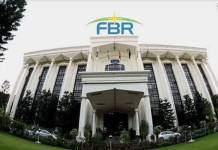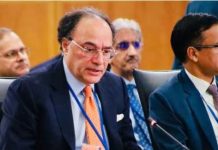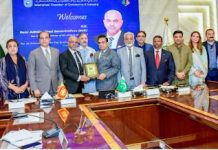ISLAMABAD, JUL 21: /DNA/ – THE Federation of Pakistan Chambers of Commerce & Industry’s (FPCCI) Businessmen Panel (BMP) has said that instead of excessive borrowing, including the recent IMF $7 billion financing, the Ease of Doing Business was vital to put the country’s economy back on track.
In a statement issued here, BMP Chairman and FPCCI former president Mian Anjum Nisar stated that providing affordable electricity would assist in lowering production costs, thereby benefiting the public. He stated that rising imports and a widening trade deficit posed a serious threat to economic growth and must be addressed urgently.
He said that with continuous hike in cost of production in the country, what the Pakistan’s economy really needs is persistent and sound economic management, asking the authorities for undertaking economic reforms and improving the regulatory environment for better Ease of Doing Business level to boost foreign investment so that financial stability can be achieved in the long-run.
The BMP chief urged the power ministry to identify system constraints and communicate targets to all concerned departments in order to launch a wartime effort to upgrade the transmission system.
Mian Anjum Nisar alleged all previous governments for extensive borrowing of forex during last five years to meet local expenditure, which had increased the burden of foreign debt of Pakistan substantially, instead of making serious efforts to enhance the ranking of Ease of Doing Business Index of Pakistan, as it is must to attract foreign as well as local investment and high economic growth.
He stressed the need for reducing cost of doing business, besides evolving a new price control mechanism, as huge taxation, rising oil prices and constant jump in electricity and gas tariffs have lifted the inflation to decades high level.
The BMP chief warned the authorities that high inflation can hurt economic growth and a careful policy is required to keep it in control. He said that the pace of inflation is skyrocketing at a time when the economic activity is slowing down.
As the oil prices have been increased and power tariff has gone up further, the chairman stated that the government has dropped a fuel bomb on the businessmen after it suffered an electric shock to meet the conditions of IMF for the revival of the stalled loan program- a recipe to shake the trade and industry.
He said that the decision would prove detrimental to the industries due to high cost of doing business and will also open the floodgates of inflation. In addition to making the electricity bills costlier and unaffordable for the consumers, the hike in base tariff would escalate prices of all household goods being widely used in every household, he added.
He termed the increase in tariff unlawful and a violation of NEPRA’s own rules and regulations, as any increase in tariff has to be determined and implemented only after holding public hearings but unfortunately they have solely decided to raise the tariff without holding public hearings, he argued.
He condemned the National Electric Power Regulatory Authority’s decision to increase electricity tariffs, stating that the burden of power theft, mismanagement, and inefficiencies cannot be shifted to consumers on the pretext of fuel adjustment.
Maaz Mahmood said that Pakistan’s industry had been harmed by the high cost of doing business, which discouraged investment in capacity and capability and called for easing the burden of heavy taxes on the power sector.
He stated that the constant increase in power tariffs on the pretext of fuel adjustment had increased electricity prices and added to the already high cost of trade and industry. Seeking comparable energy tariffs for domestic industries in order to capture the global market, he stated that due to high electricity rates, power theft became rampant as the tariff was unaffordable to consumers.
He urged the completion of all ongoing power projects well ahead of schedule. He stated that business-friendly policies must be adopted, similar to those adopted by other neighbouring countries in the region.
He suggested that the amount specified in trade policy be used to promote exports by providing incentives to trade and industry and by exploring new markets. According to him, Pakistan’s electricity prices were already on the high side, which was the primary reason for the country’s price hikes.

















